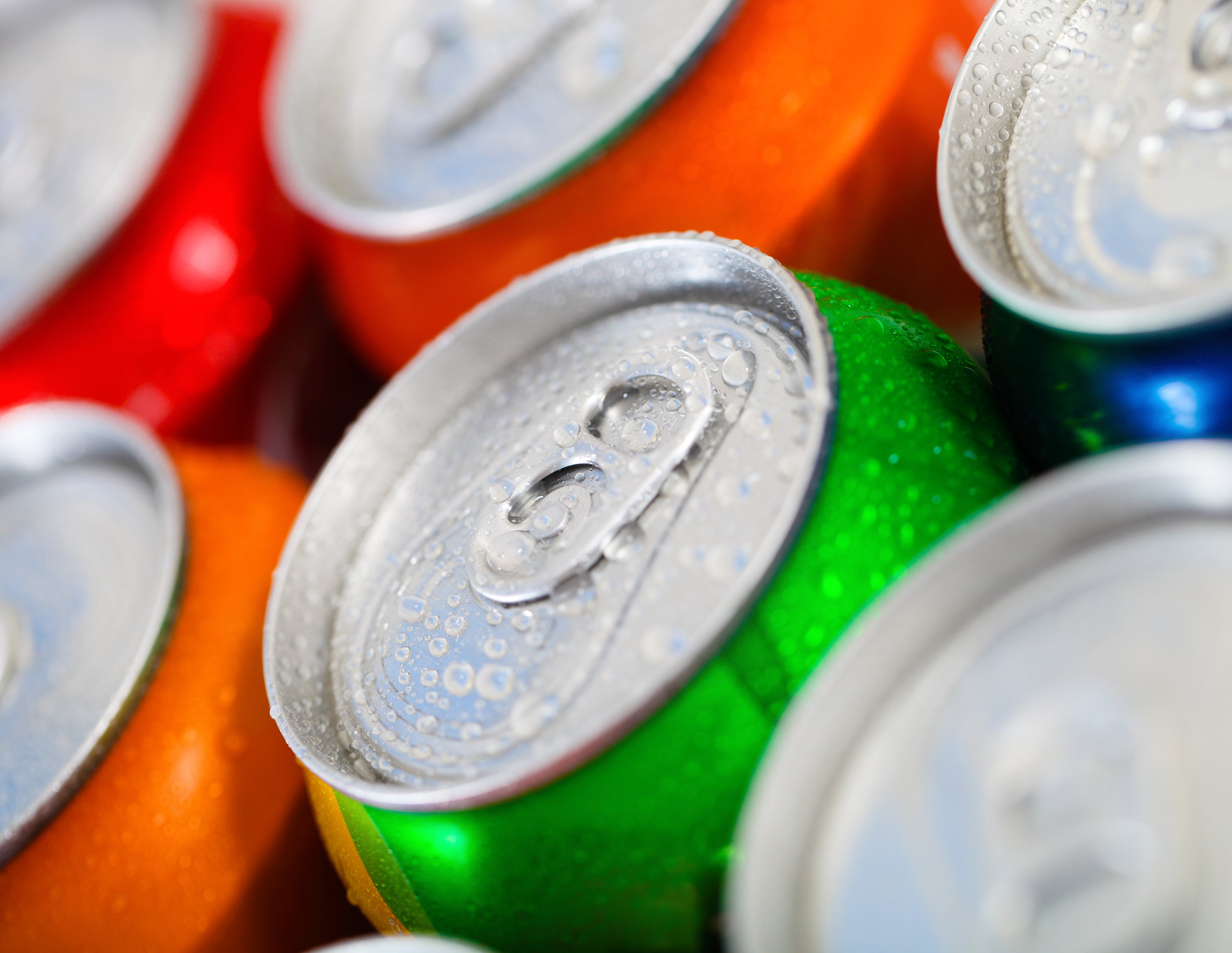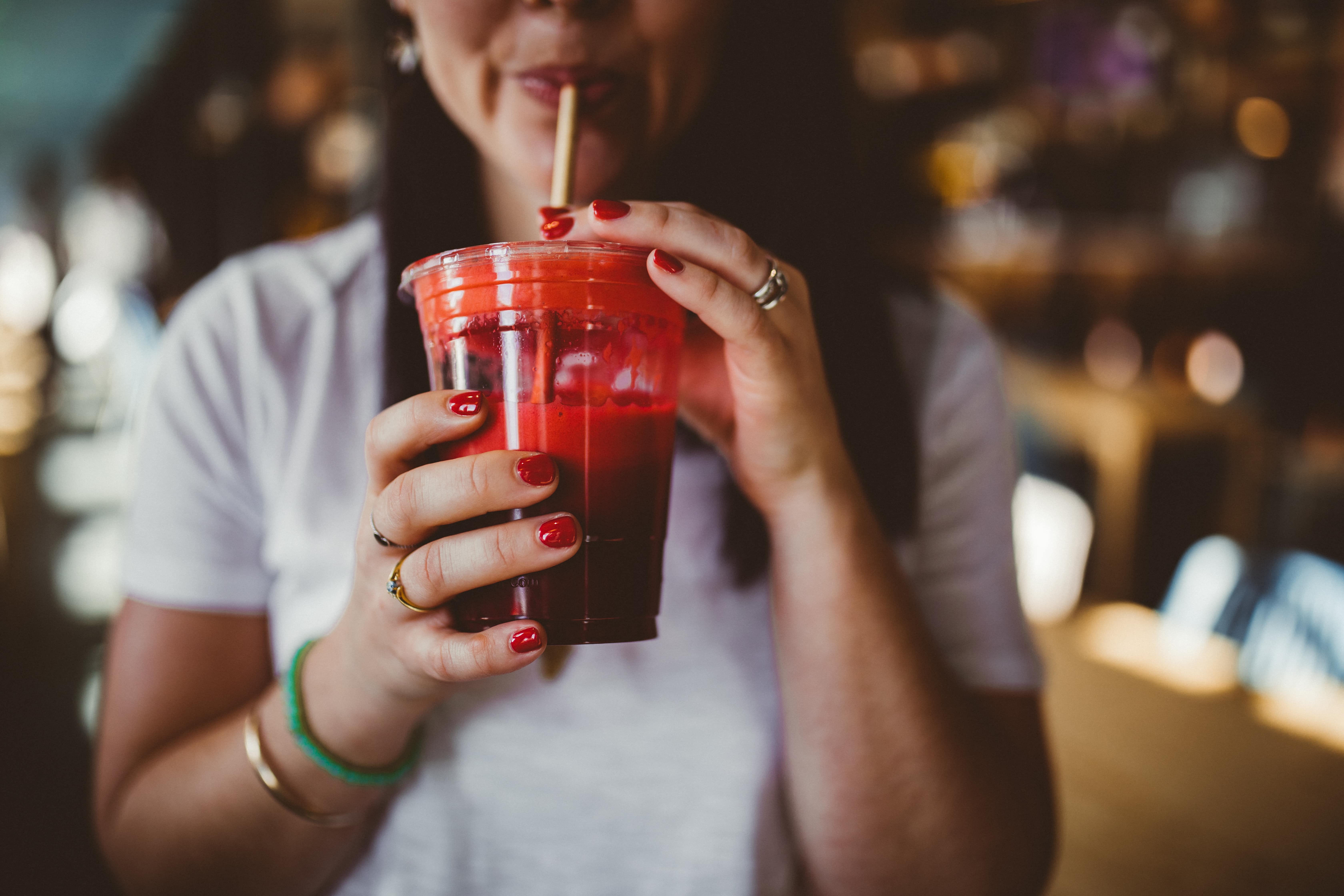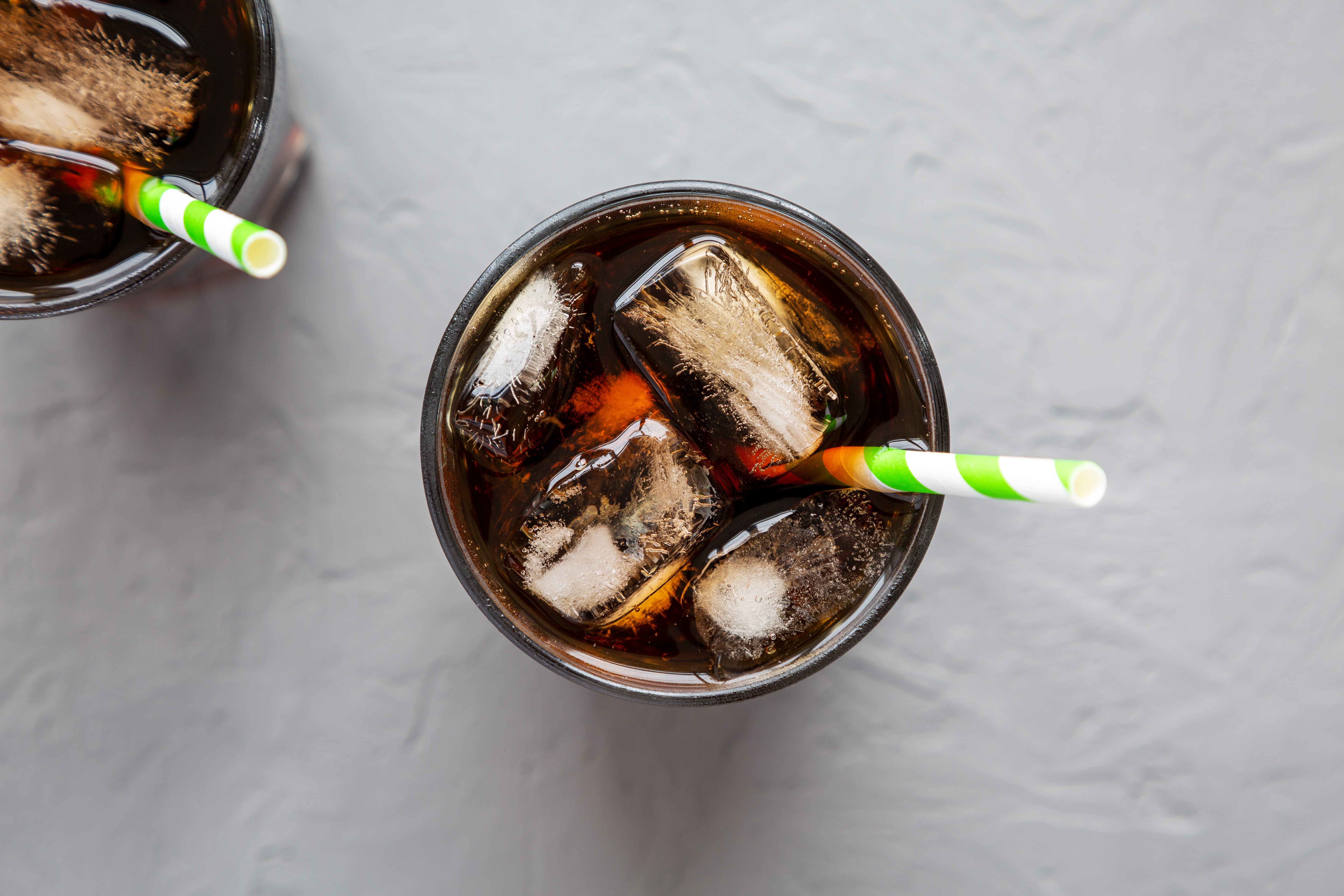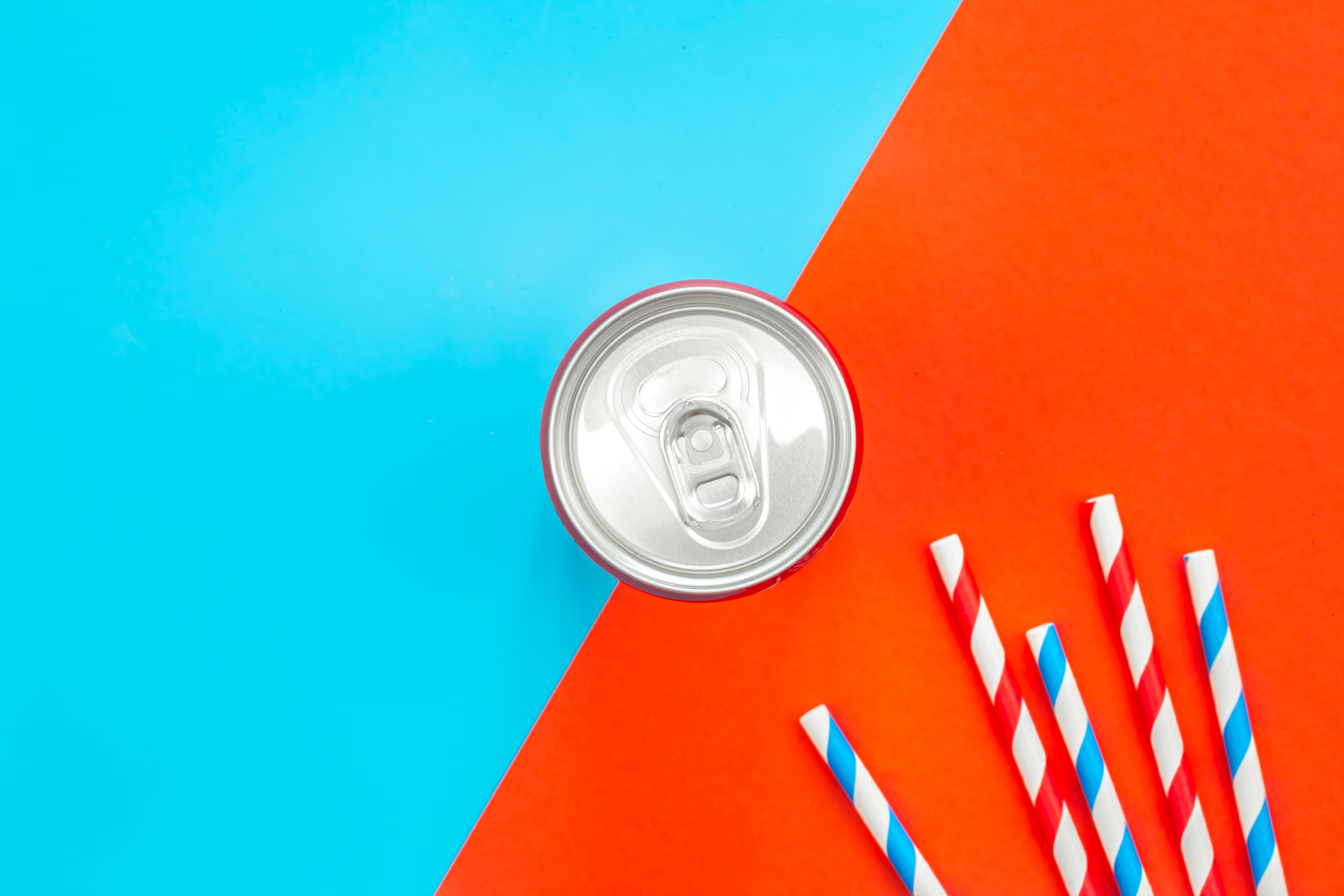Key Takeaways
- Zero-sugar sodas impact the metabolic health of each person differently.
- Choosing other options like water or tea will benefit your health more than diet sodas will.
- To understand your body’s zero-sugar soda glucose impact, Signos provides personalized insights.
{{mid-cta}}
Walking down the aisle at the grocery store, you’ll find a variety of diet sodas, from Coke Zero to Diet Sprite to root beer. Zero-sugar sodas, such as these, are marketed as guilt-free alternatives, as they’re thought to have no impact on metabolism or blood sugar levels like regular sodas do. However, it’s not quite that simple, so don’t make a habit of reaching for a soft drink when you’re thirsty!
The good news is that with Signos, you can see real-time effects of zero-calorie soda on blood sugar and make informed beverage choices. Continue reading to learn more about the nuances of zero-sugar soda glucose impact.
Understanding Zero Sugar Sodas

Zero-sugar, or diet, sodas use artificial or non-nutritive sweeteners to imitate the taste of real sugar without the calories. Common sweeteners include aspartame, sucralose, and stevia. They vary in sweetness. Compared to sucrose, aspartame is 200 times sweeter, sucralose is 600 times sweeter, and stevia is 100 to 300 times sweeter.
Although they are calorie-free, artificial sweeteners have subtle effects on glucose and metabolism.
The Metabolic Impact of Artificial Sweeteners

Research on artificial sweetener metabolism shows mixed results.
Gut microbiota, which plays a role in metabolism, is affected by non-nutritive sweeteners. Research has found a difference in bacterial diversity between individuals who consumed aspartame or acesulfame potassium (another artificial sweetener) and those who did not consume either.1 This is significant because alterations in gut bacteria are associated with various diseases, including diabetes, hypertension, and liver disease.2
Another study found that saccharin intake during the course of one week led to an elevated glycemic response (a rise in blood sugar) among “responders”, which was associated with changes in the gut microbiome. Other participants did not respond to the saccharin, making them “non-responders.”1
Blood sugar and glycated hemoglobin (HbA1c) levels were not affected by stevia consumption in individuals with and without diabetes, as reported in a meta-analysis of randomized controlled trials. Similarly, several studies assessing the effect of aspartame on blood glucose and HbA1c did not find a significant impact.1
Because these sweeteners can affect people differently, it’s important to track your individual glucose response to understand your personal metabolic reaction.1
Zero Sugar Sodas vs. Water and Other Beverages

Zero-sugar sodas may save you calories, but they aren’t necessarily the best choice for supporting stable glucose or long-term metabolic health. While these drinks can satisfy a craving for something sweet and bubbly, they don’t contribute any real hydration benefits, and some artificial sweeteners may subtly affect appetite, taste preferences, and gut health over time.
If you’re aiming to maintain steady blood sugar and overall wellness, water and unsweetened teas are smarter everyday options. Plain water remains the gold standard for hydration, helping the body regulate a hormone called arginine-vasopressin peptide (AVP). Elevated AVP levels are linked to insulin resistance, type 2 diabetes, and metabolic syndrome. By keeping hydrated, you help regulate AVP, which supports healthy insulin function and glucose balance.4
Tea, particularly green and white varieties, offers additional advantages. Studies show that tea consumption can improve metabolic health markers like blood sugar, blood pressure, and lipid levels, especially when paired with physical activity. In one study, women with type 2 diabetes who combined white tea with aerobic exercise experienced improved glucose and insulin regulation.3 Another large study found that people who drank 16 to 30 cups of green tea per week had a lower risk of developing type 2 diabetes compared to non–tea drinkers.3
In short, while zero-sugar sodas can fit into your diet occasionally, beverages like water and tea do more than quench thirst; they actively support metabolic balance, hydration, and overall health.
Practical Guidelines for Enjoying Zero Sugar Sodas

When it comes to low-calorie drinks and glucose metabolism, moderation is key. Even though zero-sugar sodas don’t contain traditional sugar, they can still influence cravings, appetite, and overall metabolic health. Think of them as an occasional treat rather than a daily staple. Whether your go-to is Diet Coke, Pepsi Zero, or Sunkist Orange Zero, enjoy it mindfully, perhaps paired with a meal rather than on an empty stomach to reduce potential glucose variability and sweet cravings later.
Another tip is not to overlook simpler alternatives. Sparkling water or seltzers offer the same fizzy satisfaction without artificial sweeteners or real sugar. Many brands now offer naturally flavored options, like lemon-lime, grapefruit, or wild cherry, that deliver a refreshing taste with zero calories and minimal ingredients. Consider buying a variety pack to explore flavors until you find your favorite.
If you enjoy some sweetness, try customizing your sparkling water with a splash of 100% fruit juice, a few muddled berries, or a squeeze of citrus. These small additions can elevate flavor while keeping added sugar minimal.
Finally, pay attention to how your body responds. Everyone’s metabolism and taste preferences differ. Logging your beverage choices and tracking how they make you feel (energy levels, cravings, or focus) can reveal valuable patterns and help you decide which drinks truly support your wellness goals.
The Bottom Line

Zero-sugar sodas aren’t inherently harmful. However, their metabolic impact varies from person to person. As a result, it’s imperative that you understand your body’s zero-sugar soda glucose impact.
Signos allows you to monitor glucose responses and make data-driven decisions, enabling you to enjoy your beverage without compromising your metabolic health.
Learn More With Signos’ Expert Advice
To help you better control blood sugar for general good health, Signos provides 24/7 glucose monitoring, real support from registered dietitians, smart food logging, and personalized insights. Learn more about the role of glucose in overall health on the Signos blog.
Topics discussed in this article:
References
- Pang, M. D., Goossens, G. H., & Blaak, E. E. (2021). The Impact of Artificial Sweeteners on Body Weight Control and Glucose Homeostasis. Frontiers in nutrition, 7, 598340. https://doi.org/10.3389/fnut.2020.598340
- Madhogaria, B., Bhowmik, P., & Kundu, A. (2022). Correlation between human gut microbiome and diseases. Infectious medicine, 1(3), 180–191. https://doi.org/10.1016/j.imj.2022.08.004
- Erukainure, O. L., Chukwuma, C. I., Nambooze, J., Tripathy, S., Salau, V. F., Olofinsan, K., Ogunlakin, A. D., Ebuehi, O. A. T., & Unuofin, J. O. (2025). Tea Consumption and Diabetes: A Comprehensive Pharmacological Review of Black, White, Green, Oolong, and Pu-erh Teas. Plants, 14(13), 1898. https://doi.org/10.3390/plants14131898
- Koceva, A., Janež, A., & Jensterle, M. (2025). The Impact of Hydration on Metabolic Outcomes: From Arginine-Vasopressin Signaling to Clinical Implications. Medicina, 61(5), 838. https://doi.org/10.3390/medicina61050838




.svg)










.svg)
.svg)
.svg)
.svg)
.svg)
.svg)
.svg)
